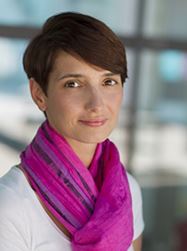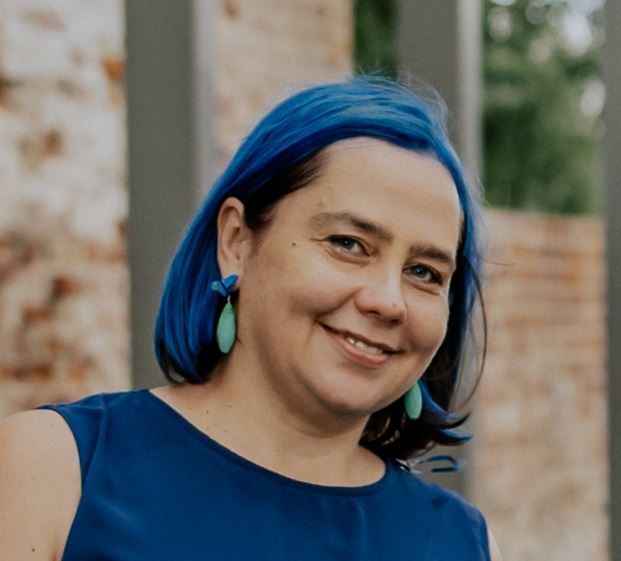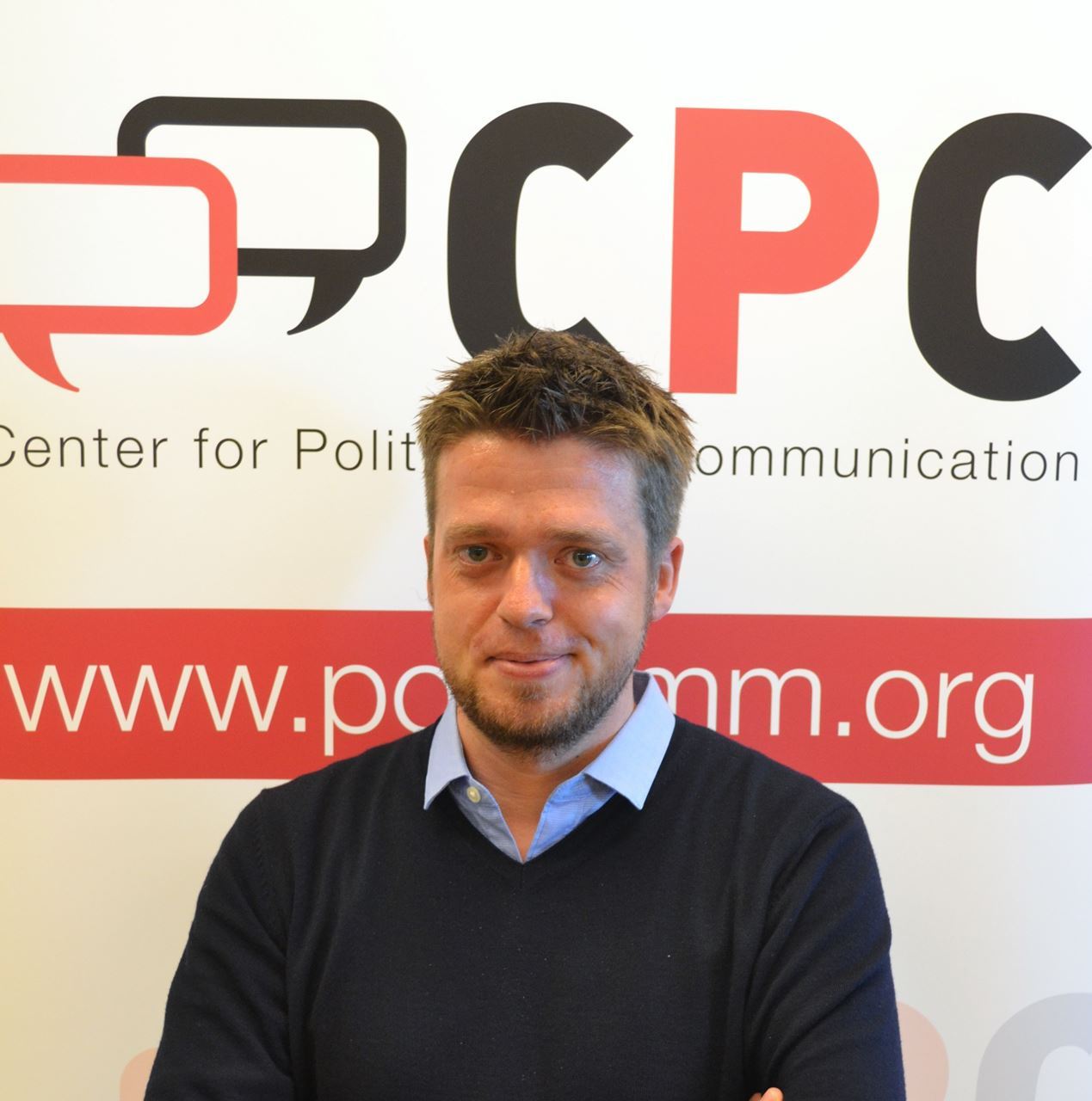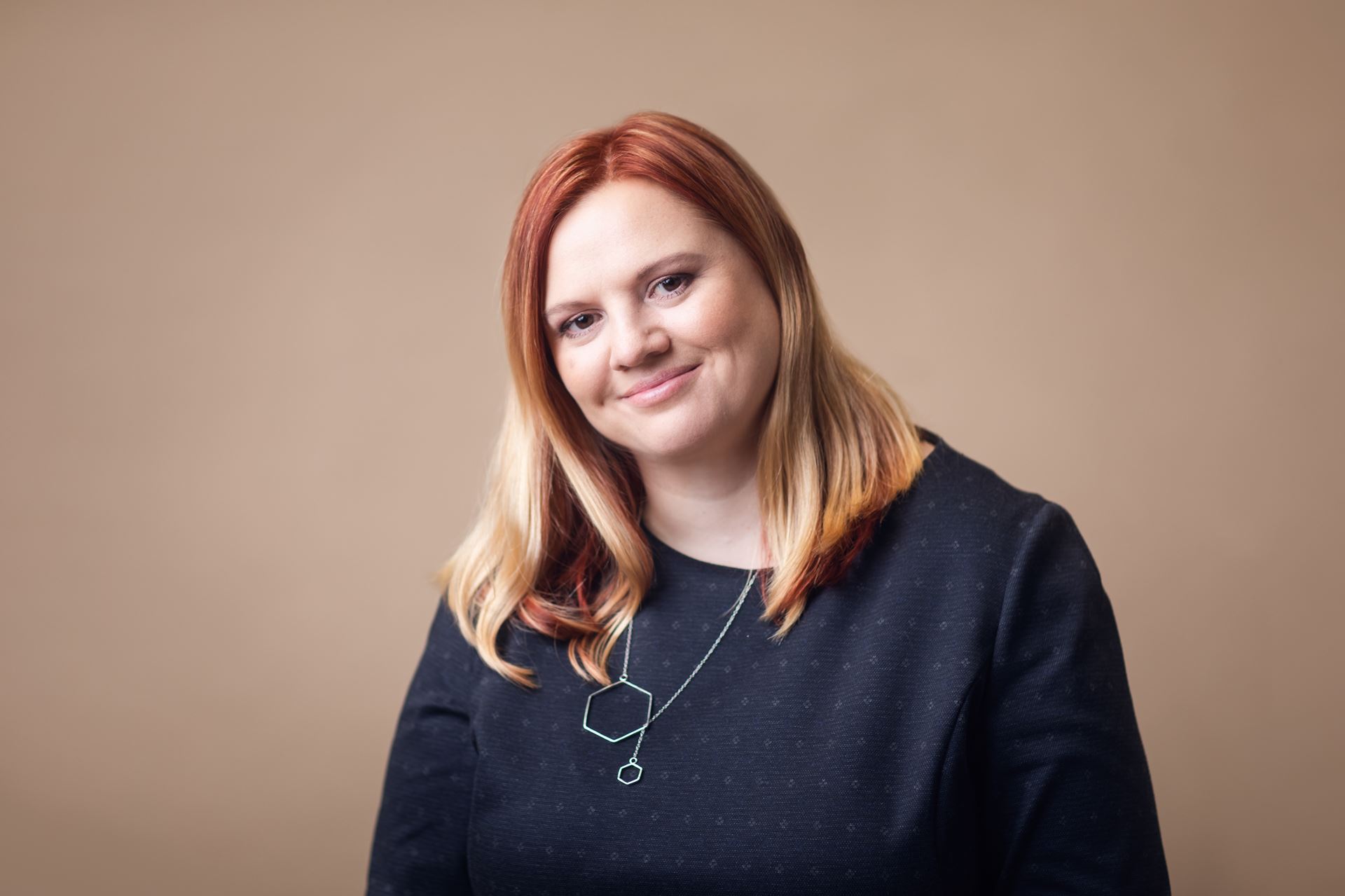European Communication Research |
Governing bodyIf you want to contact ECREA Governing Body, please, send your message at board@ecrea.eu. pille pruulmann-vengerfeldtPresident Pille Pruulmann-Vengerfeldt is Professor in Media and Communication studies at School of Arts and Communication, Malmö University Sweden.
Pille Pruulmann-Vengerfeldt’s academic journey is marked by her interests in cultural citizenship and participation, engagement in museums, libraries, public broadcasting, and the social applications of new technologies. Her research approach is characterized by creativity and collaboration. In recent times, she has, for instance, written and considered creative methods, autoethnography, and collaborated with professional artists to understand how communication professionals interpret datafication. Her core motivator for research and education is to foster a kinder and more equitable world. In her research, she is focused on collaboration with actors outside academia, as well as collaborations with other disciplines. Pille believes media and communication research has theoretical and methodological contributions as well as relevant research questions and should not be treated just as a “help discipline” in communicating the results. Bridging academic and practitioner-oriented research does not mean lowering the quality of research, and asking questions that interest all parties can be difficult but worthwhile once these questions are reached. She has MA in Media and Communication and a PhD in Media and Communications from the University of Tartu, Estonia. Since 2015, she has worked and lived in Southern Sweden, allowing her to bridge the contexts of Nordic and Eastern-European media research. Pille Pruulmann-Vengerfeldt has been regularly invited as a speaker to diversity at academic and professional events in Estonia and abroad Estonian Parliament has appointed her as an expert member of the Estonian Public Broadcasting Board (2015-2020) and head of the auditing committee for Estonian Public Broadcasting (2017-2020). Since 2020, she has been an elected Member of Academia Europaea, the Film, Media and Visual Studies section. Małgorzata Winiarska-BrodowskaVice-President  Małgorzata Winiarska-Brodowska is an Assistant Professor at the Department of Journalism and International Communication, Institute of Journalism, Media and Social Communication, Jagiellonian University in Krakow, Poland.
Malgorzata's research and teaching interests lie at the intersection of media, politics and international relations. Malgorzata holds a PhD in social sciences (political science). She graduated in journalism, cultural studies and European studies from the University of Vienna. She gained professional experience both in the academia as well as in governmental administration and media. Since 2020 she has been acting as a Dean’s Proxy for Quality Assurance at the Faculty of Management and Social Communication of the Jagiellonian University (the second term: 2024-2028) and a member of the Una Europa Quality Assurance Cluster. She was Chair of ECREA Central and East-European Network and Chair of CEECOM 2021. She authored several dozen scientific publications in the field of political communication, media and communication in international relations, media & AI, organizational and strategic communication as well as quality assurance in the higher education institutions. Herminder KaurGeneral Secretary
Dr Herminder Kaur is a Lecturer in Ethics and Research Management at Liverpool School of Tropical Medicine for the Department of Education.
Herminder’s research focuses on participatory, digital, and mixed-methods approaches to studying digital engagement among young people, individuals with disabilities, older adults, and ethnic minority communities. She has contributed to national policy work as a member of the UK Department for Culture, Media and Sport’s Digital Skills and Inclusion Research Working Group, helping to develop the national digital engagement toolkit What Works. As Principal Investigator, she led a Higher Education Initiative Fund project at Middlesex University exploring digital access and use among South Asian communities in England. She is also an active peer reviewer for leading journals including New Media & Society, Journal of Adolescence, Behavioral Sciences, Healthcare, Sustainability, and Safer Communities. Alongside her research, Herminder has a proven track record in leading strategic educational initiatives, enhancing the student experience, and supporting academics and early-career researchers through supervision and collaborative leadership. She has held senior academic roles including Senior Lecturer in Digital Sociology, Director of Programmes, and Director of Learning, Teaching and Quality at Middlesex University. More recently, she has served as Associate Academic Manager, overseeing academic operations across higher education partnerships. She also contributes nationally as a Writer for the UK Quality Code and the Advice and Guidance on Teaching, Learning and Assessment for the 2025–2026 Quality Assurance Agency.
TETyanA LOKOTTreasurer Tetyana Lokot is Associate Professor in Digital Media and Society at the School of Communications, Faculty of Humanities and Social Sciences, Dublin City University, Ireland.
Tetyana researches threats to digital rights, networked authoritarianism, digital resistance, networked citizenship, internet freedom and internet governance in Eastern Europe. She is the author of Beyond the Protest Square: Digital Media and Augmented Dissent (2021), an in-depth study of protest and digital media in Ukraine's Revolution of Dignity. She has held visiting fellowships at the Sydney Social Sciences and Humanities Advanced Research Centre, University of Sydney, Australia and the Center for Advanced Internet Studies in Bochum, Germany. She has published in Information, Communication & Society; Social Media + Society; Digital Journalism; Communication and Critical/Cultural Studies, among others. Her writing has appeared in The Guardian, The Washington Post, Foreign Policy and The Irish Independent, and she regularly contributes expert commentary to Wired, The New York Times, The Wall Street Journal, The Economist and Bloomberg. Tetyana previously served as Vice-Chair and Chair of ECREA's Media, Cities and Space Section between 2016 and 2022. She is currently the Vice-Chair of the ECREA Ukraine Task Force. She is also on the Board of Directors for Places of Sanctuary Ireland. She received her PhD from the Philip Merrill College of Journalism at the University of Maryland. Detailed CV: online here. Indrek Ibrus
Indrek Ibrus is Professor of media innovation at Tallinn University’s Baltic Film, Media and Arts School (BFM) in Estonia.
Indrek Ibrus is Professor of media innovation at Tallinn University’s Baltic Film, Media and Arts School (BFM) in Estonia. He is also a member of Tallinn University’s Council, curates BFMs doctoral programme and serves as a member of doctoral councils of Tallinn University (humanities) and Estonian Academy of Arts (arts and design). He regularly advises the Estonian government via various formats, currently mainly as a member of the Ministry of Culture’s Digital Cultural Heritage committee and of the Steering Committee of the Estonian Cultural Development Plan 2021-2030. Previously he has advised the Council of Europe and the European Commission on media and cultural policymaking. In his past career as a civil servant and advisor of audiovisual affairs at the Estonian Ministry of Culture, he represented Estonia in the Council of Europe Steering Committee on Media and Information Society (CDMSI) and the Audiovisual and Media Working Party of the Council of the European Union. He obtained his PhD from the London School of Economics and Political Science (LSE) in media and communications with a thesis exploring the early evolution of the mobile web. His work has always been interdisciplinary, linking cultural semiotics and other approaches to cultural dynamics with innovation economics in order to interpret cultural and media change. His current research interests include media innovation, the evolution of the internet and Public Service Media, media datafication and the public value of media services and data. He has published on mobile media, media innovation/evolution, metadata evolution, transmedia and cross-media production. He is currently a principal investigator in the Estonian government-funded 5-year research project “Public Value of Open Cultural Data” and is a work package lead in the Horizon Europe project CresCine. He has been a co-editor (together with Carlos A. Scolari) of Crossmedia Innovations (Peter Lang, 2012), editor of Emergence of Cross-Innovation Systems (Emerald, 2019) and co-author (with John Hartley and Maarja Ojamaa) of On the Digital Semiosphere (Bloomsbury, 2021). He is also one of the editors of Baltic Screen Media Review and leads the editorial committee of Tallinn University Press book series Bibliotheca Mediorum et Communicationis. In 2024 he was awarded Estonian Goverment award in Social Sciences - the highest national award for research in Estonia. Beata klimkiewiczBeata Klimkiewicz is Jagiellonian University Professor in the area of media and social communication studies, based at the Institute of Journalism, Media and Social Communication, JU, Kraków.
Beata Klimkiewicz is Jagiellonian University Professor in the area of media and social communication studies, based at the Institute of Journalism, Media and Social Communication, JU, Kraków. She held Jean Monnet Chair for 2019 – 2024 (Media Freedom, Trust and Transparency in the European Union). Recently, she became a member of the Euromedia Research Group (EMRG). Her research interests include media pluralism and diversity; media policy and regulation in Europe; media systems in Central Europe. Since 2012, has been involved in co-operation with the Centre for Media Pluralism and Media Freedom at European University Institute in Florence as a member of Scientific Committee and national expert in Media Pluralism Monitor (MPM). Beata has also provided expertise for the past UNESCO’s report on World Trends in Freedom of Expression and Media Development, EMFA-related Study on media plurality and diversity online and other policy-based studies. She is an author of books “A Polyvalent Media Policy in the Enlarged European Union” published by the Jagiellonian University Press and “Media Freedom and Pluralism: Media Policy Challenges in the Enlarged Europe” published by the CEU Press”. Recently, she is involved as a principal investigator in two international research projects: PANCOPOP (Pandemic Communication in Times of Populism), covering USA, Brasil, Poland and Serbia, and MeDeMAP (Mapping Media for Future Democracies - EU Horizon 2020 project), covering 10 EU countries. Asko Lehmuskallio
Asko serves as Professor of Visual Studies and is director of the Visual Studies Lab at Tampere University, Finland.
Asko serves as Professor of Visual Studies and is director of the Visual Studies Lab at Tampere University, Finland. His work focuses on the intersection between visual studies and media studies, with a special interest in media anthropology and digital cultures. He is particularly interested in the interrelations between images, bodies and visual technologies, with a special interest in the interrelations between seeing and knowing. Asko studied cultural anthropology at Philipps-Universität Marburg and image science (Bildwissenschaft) at the Dept. of Art History and Media Theory, Hochschule für Gestaltung Karlsruhe. He received his PhD (YTT) at the School of Communication, Media and Theatre in Tampere, and was awarded in 2016 the Title of Docent in Visual Studies. Asko has studied and worked in Spain, Germany, the US, UK and Finland, and held several visiting fellowships abroad, including as Visiting Scholar at UC Berkeley and at the Sussex Humanities Lab in the UK. He has also served as Rudolf Arnheim Guest Professor at Humboldt-Universität zu Berlin, Germany and as Visiting Professor at the London School of Economics and Political Science in the UK. At ECREA, Asko has chaired the TWG Visual Cultures, as well as the Section Visual Cultures, which he co-founded. Asko has over 50 academic publications and has co-curated two exhibitions based on his research work: #snapshot (2014-15) and Documenting the body: A history of the Finnish Passport (2020). For more information, see: https://visualstudieslab.fi Dariya Orlova
Dariya Orlova is an Associate Professor at the Mohyla School of Journalism, National University of Kyiv-Mohyla Academy in Kyiv, Ukraine. Dariya received her Ph.D. degree in media and communications from the Autonomous University of Barcelona in 2013. Her recent research projects explored transformation of media and journalism in Ukraine, journalists’ professional identity in post-Euromaidan Ukraine, journalism in times of war, media use among border populations in Ukraine. Dariya held visiting fellowships at the Center for Media at Risk, Annenberg School for Communication, University of Pennsylvania, in 2022-2023 and Stanford University’s Center for Russian, East European and Eurasian Studies in 2016. Her articles have been published in Journalism Studies, Journalism, Post-Soviet Affairs, among others. Dariya has served as an independent media expert and researcher with NGOs and international organizations and development agencies. She is also currently a Secretary of the ECREA Ukraine Task Force. Tereza PavlíČková
Tereza Pavlíčková is Lecturer at Media and Communications Programme at London College of Communication, University of the Arts, London, UK.
Tereza's main research interests are media audiences, media users and the diverse practices of people’s engagement with media. She obtained her PhD from Charles University in Prague in Media studies. Her doctoral project theoretically and empirically explored people’s understanding of authors – the complexity of productive practices behind a text – and how this is brought up and reflected in their understanding and use of media. Her work primarily focuses on sense-making practices as an inherent part of media consumption, and the mutual dynamics of agency and structure in audiences’ relations to (digital) media, she explores how can we conceptually imagine, and empirically explore people’s agency in relation to data-driven infrastructures, including interested in the audience-centric exploration of media materiality and its environmental impact. Within ECREA, she served as vice-chair of ECREA’s Young Scholars Network (YECREA) between 2016 and 2018. ANDREAS SCHUCK
Andreas Schuck is Associate Professor of Political Communication & Journalism at the Amsterdam School of Communication Research (ASCoR) at the University of Amsterdam, the Netherlands.
Andreas received his Ph.D. degree in Political Communication from the University of Amsterdam in 2009. Between 2016 and 2021 he has been Chair of the ECREA Political Communication section. His research focuses on media effects on political opinions, attitudes and behavior. More in particular, research topics include public opinion dynamics during election campaigns, media effects on political participation, citizen (de-)mobilization and behavioral change, and the role of emotions in political communication. He has been visiting scholar at the University of Technology Sydney and The School of Media and Public Affairs at the George Washington University in Washington, DC. His work has been published in internatonal peer-reviewed journals such as Journal of Communication, Political Communication, Communication Research, European Union Politics, Electoral Studies, Journalism, British Journal of Political Science and International Journal of Press/Politics. In Amsterdam he is program manager of the international Erasmus Mundus MA program in ‘Journalism, Media and Globalisation’ (for more information see: www.mundusjournalism.com).
Andra Siibak
Andra Siibak is a Professor of Media Studies and program director of the Media and Communication doctoral program at the Institute of Social Studies, University of Tartu, Estonia.
Her main field of research has to do with the opportunities and risks surrounding internet use, social media usage practices, datafication of childhood, new media audiences, privacy and cybercrime. Her forthcoming monograph “Datafied Childhoods: Data Practices and Imaginaries in Children’s Lives”, co-authored with Giovanna Macheroni, will be published by Peter Lang in autumn 2021. Andra has engaged in various international research projects and networks (e.g. EU Kids Online) and acted as expert consultant on Estonia for projects initiated by the European Parliament, European Commission, European Council and OECD. Andra is a member of the Estonian Young Academy of Sciences (since 2016), and in 2021 she was nominated to become a member of Film, Media and Visual Studies section of Academia Europaea. Sergio Splendore Sergio Splendore (PhD in Sociology) is an Associate Professor in Sociology of Culture and Communication at the Department of Social and Political Science of the Università degli Studi di Milano.
Sergio Splendore (PhD in Sociology) is an Associate Professor in Sociology of Culture and Communication at the Department of Social and Political Science of the Università degli Studi di Milano. His fields of expertise are journalism and political communication. Since 2015 he is member of the Worlds of Journalism study (www.worldsofjournalism.org), that assesses the state of journalism throughout the world. Since 2018 he is member of the Nepocs network (The Network of European Political Communication Scholars). Recently he has been part of different research projects that gained grants among others TASKS (Trust, Authority, Sense and Knowledge), PHARM (Preventing Hate Against Refugees and Migrants) and I-POLHYS (Investigating POLarization in HYbrid media Systems). He has authored or co-authored several articles published in high rank scientific journal. He has also published 5 Italian books. CATALINA IORDACHE
Catalina Iordache is a senior researcher at the research group imec-SMIT, Vrije Universiteit Brussel (Studies in Media, Innovation and Technology) and member of the Media Economics and Policy research unit.
She obtained a PhD in Media and Communication Studies in 2022 (VUB) on the transnational flow of audiovisual content online, which established her expertise in media industries studies, and specifically audiovisual production and distribution, streaming video services, and European audiovisual policy. Currently, she is conducting postdoctoral research in the PSM-AP: Public Service Media in the Age of Platforms project (funded by the CHANSE-Horizon Europe, 2022-2025). In 2024, she held a visiting research fellowship at the Audiovisual Diversity research group, at University Carlos III Madrid. Catalina is also a Guest Professor at the Department of Communication Sciences in the Faculty of Social Sciences and Solvay Business School (VUB), where she teaches a course on European Media Markets, supervises master theses in the MSc. Digital Media in Europe programme, and co-supervises two PhD candidates. In 2024 she was re-elected as vice-chair of the Media Industries and Cultural Production ECREA section, after two years of tenure. DINA VOZAB
Dina Vozab is an Assistant Professor at the Department of Media and Communication, Faculty of Political Science, University of Zagreb, Croatia.
Her research interests have been in media and democracy, media systems, media in post-socialist Europe, and news media audiences. She holds a PhD in Political Science and graduated in Sociology from the University of Zagreb. She has published in journals such as Central European Journal of Communication, Contemporary Southeastern Europe, International Journal of Communication, Journalism, etc. She received the Croatian annual science prize for the book Comparing Post-Socialist Media Systems: The Case of Southeast Europe (Routledge, 2021, in co-authorship with Zrinjka Peruško and Antonija Čuvalo). She participated in many comparative research projects and networks in media and communication and organization of several international conferences. Dina previously served as a vice-chair of the ECREA CEE Network and is currently chair of the same Network. MAARIT JAAKKOLA
Maarit Jaakkola is co-director of Nordicom, a centre for Nordic media research at the University of Gothenburg, and an associate professor in journalism at the Department of Journalism, Media and Communication (JMG) at the University of Gothenburg in Sweden.
Maarit Jaakkola's research focuses on questions of media, cultures and learning, with research interests in cultural journalism and criticism, journalism education, pedagogies of emerging technologies, media, digital and cultural literacies, as well as minority-language media. Recently, Jaakkola has authored the monographs "Reviewing Culture Online: Post-Institutional Cultural Critique across Platforms" (Palgrave Macmillan, 2022) and "Pedagogical Opportunities of the Review Genre: Learning in Cultures of Evaluation" (Routledge, 2024), as well as edited the book "Reporting on Artificial Intelligence: A Handbook for Journalism Educators" (UNESCO, 2023). Jaakkola is the editor-in-chief of NordMedia Network, a digital platform for media researchers funded by the Nordic Council of Ministers and run by Nordicom, and of the leading Finnish journal in cultural studies that was awarded the title of the Scientific Journal of the Year 2024 in Finland. At ECREA, Jaakkola is the co-founder of the temporary working group Media Literacies and Communication Competencies (MLCC). Moreover, she is the founder and coordinator of the national Swedish Academic Forum of Media and Information Literacy Research, a member of the planning committee of the Nordic NordMedia Conference with a responsibility for the biennial doctoral pre-conferences, and the Swedish national coordinator of the EU Kids Online network. She is also engaged in international networks such as the UNESCO MIL Alliance and the UNESCO Media & Information Literacy and Intercultural Dialogue (MILID) University Network, which she co-led in 2021–2023. She has worked as a journalism educator and a journalist, and she is an adjunct professor in journalism at the Faculty of Information Technology and Communication Sciences (ITC) at Tampere University in Finland. JELENA KLEUT Jelena Kleut is Associate Professor at the Department of Media Studies, Faculty of Philosophy, University of Novi Sad, Serbia.
Jelena Kleut is an independent scholar. She received master and doctoral degree in communication studies at the Faculty of Political Sciences in Belgrade. She is a visiting lecturer at the Faculty of Social Sciences, University of Ljubljana (2022-2025). Jelena’s research interests lie in audience and journalism studies, specifically in relation to digital media and transitional democracies. As an academic omnivore, she studied audience engagement and participation, local news, and post-communist transformation of media and journalism. She has published in the peer reviewed journals (New Media & Society, International Journal of Communication, Discourse & Society, Journalism Practice, and others), and edited volumes. Her recent publications include “Media Systems in Balkan Countries: Context and Dynamics of Changes” (Peter Lang, 2023), co-edited alongside Bogusława Dobek Ostrowska, and “Horizons of meaning: semiotic systems and media practices” (in Serbian, 2025), co-authored with Ana Milojević. Jelena combines her scholarly work with activism, collaborating closely with journalists’ associations, non-profits, and student groups on issues related to media freedoms. Within ECREA, she served as vice-chair (2021) and chair (2022-2024) of the Audience and Reception Studies Section. | More about ECREA |
















